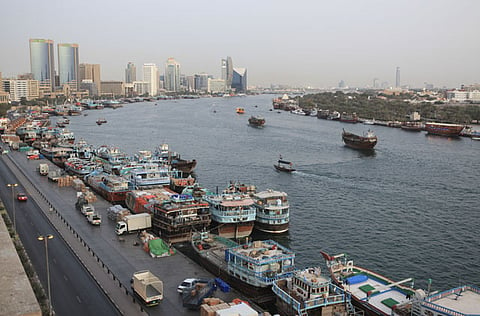Dubai to become the most competitive Middle East city by 2025
Dubai is expected to be the most competitive city in the Middle East and North Africa

Dubai: Dubai is expected to be the most competitive city in the Middle East and North Africa by 2025, when it improves ranking by six to become the 23rd most competitive city in the world, according to a latest Economist Intelligence Unit (EIU) report published on Wednesday.
The EIU research, Hot Spots 2025: Benchmarking the Future Competitiveness of Cities, commissioned by Citi, shows Dubai is one of several cities in the Middle East that are among the top climbers in The 2025 City Competitiveness Index — followed by Doha (24th), Abu Dhabi (39th), Muscat (64th), Kuwait City (63rd) and Riyadh (87th).
“Middle Eastern cities will be bolstered by their growing economic strength, including sizable city GDP growth rates and increased integration into global trade regimes investment in education and physical capital, and enhanced global appeal (including increased flight connectivity and conference development) particularly Dubai (23rd), Doha (24th), Abu Dhabi (39th) and Muscat (64th),” the report said.
Globally, New York will remain the most competitive city, followed by London and Singapore. Cities from the United States and Western Europe account for 23 of the top 30 cities in 2025, as they will continue to attract capital, businesses, and people, despite concerns over aging populations and the lingering impacts of the financial crisis.
Europe
Europe, with seven of the 20 best-performing cities, will be highly competitive in 2025, led by London (2nd), Paris (7th), Stockholm (8th), Zurich (joint 11th), Amsterdam (13th), Copenhagen (Joint 15th), and Frankfurt (Joint 20th).
“However, the global financial crisis and recession in Europe will continue to be felt in cities across the region, resulting in a “competiveness divide” between Northern and Western Europe, and Southern and Eastern Europe,” the report says.
Madrid (joint 46th), Rome (68Th), Bucharest (80th), and Kraków (joint 87th) all decline in the rankings from 2012 to 2025.
“Around the world, cities continue to evolve as centers of innovation and engines of regional economic growth,” said Citi CEO Michael Corbat. “Core to Citi’s global strategy is a focus on urbanisation’s central role in shaping the world in the years ahead.
The urban population in Arab countries grew by more than four times from 1970 to 2010 and will more than double again from 2010 to 2050, according to a United Nations report.
Ban Ki-moon, United Nations’ Secretary General, said, through the centuries, Arab cities have generated many of humankind’s most enduring achievements and legacies. “Today, we must ensure that these cities are sustainable and inclusive – able to maintain their cultural and spiritual heritage while advancing well-being for generations to come,” he said in a recent report on the state of the Arab cities. “Urban slums are decreasing in large parts of the region, and that urban innovations are being introduced with dazzling speed.”
Mega trends
Global research firm Frost and Sullivan said, key mega trends that will drive urbanisation, geo-socialisation, connectivity and convergence, infrastructure and power will be the key drivers to power Middle East and North African economies by 2025.
“About 65.4 per cent of the total population (483.5 million) in MENA would be living in urban regions by 2025 with countries such as Bahrain, Kuwait, Lebanon, and Qatar witnessing urbanisation rates of over 90 per cent,” said an analyst. “This explosive growth in urbanisation will drive cities like Abu Dhabi and Cairo to become key economic powerhouses of the future, contributing 48 and 77 per cent to their respective countries’ Gross Domestic Products (GDPs) in 2020.”
Dubai is a good all-round performer, it says. By 2025, Dubai would outrank a number of international cities, such as Brussels, Oslo, Houston, Vancouver, Geneva, Atlanta, Seattle, Dallas, Montreal, Shanghai and Moscow.
“Already global business is beginning to plan strategy from a city, rather than a country, perspective and it is Citi’s role to help these urban centres compete on the global stage,” said Atiq Ur-Rehman, Citi’s Chief Executive Officer for the Middle East Division.
“The findings from this report prove that economic strength and investments in infrastructure and education will bolster cities in the region as they continue to rise in competitiveness in the years to come, and we are proud to partner with the region’s urban centres to continue enabling progress.”
Sign up for the Daily Briefing
Get the latest news and updates straight to your inbox


